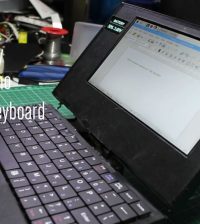- makeITcircular 2024 content launched – Part of Maker Faire Rome 2024Posted 2 weeks ago
- Application For Maker Faire Rome 2024: Deadline June 20thPosted 2 months ago
- Building a 3D Digital Clock with ArduinoPosted 7 months ago
- Creating a controller for Minecraft with realistic body movements using ArduinoPosted 7 months ago
- Snowflake with ArduinoPosted 8 months ago
- Holographic Christmas TreePosted 8 months ago
- Segstick: Build Your Own Self-Balancing Vehicle in Just 2 Days with ArduinoPosted 8 months ago
- ZSWatch: An Open-Source Smartwatch Project Based on the Zephyr Operating SystemPosted 9 months ago
- What is IoT and which devices to usePosted 9 months ago
- Maker Faire Rome Unveils Thrilling “Padel Smash Future” Pavilion for Sports EnthusiastsPosted 10 months ago
ACME Systems launched Arietta G25 a new micro Linux Board
ACME Systems announced a Micro new board: Arietta (now selling 9.99 €).
Here are the specs:
- CPU: Atmel’s AT91SAM9G25 (ARM9 clocked @ 400Mhz)
- RAM: 128 MByte DDR2
- MicroSD Socket for up to 32GB bootable Linux microSD (not included)
- USB 2.0 ports: 1 hi-speed host/device, 1 hi-speed host, 1 full-speed
- UART: 1 (RXD,TXD,RTS,CTS)
- I2C bus: 1
- SPI bus: 1 with 2 chip select (5 to 50 MHz)
- PWM: 4 lines
- A/D converters: 4 channels@10 bit
- Size: 25x51mm
- Power supply: single 3.3 Volt DC
- Line levels: TTL 3.3V (NOT 5V tolerant)
- Operative temperature range: -20 +70 °C
- Pinstrip: 20×2 pitch 2,54mm (100mils)
- PCB layers: 8
The software is supplied on a microSD (not included) in the same way as for the previous model, the Aria.
It sports Linux/Debian latest release and gives you the possibility to use almost every development languages and programming from any environment (such as Windows, Linux and Mac) via USB port.
In few words, by connecting a USB cable it pulls on a new port from which it is possible to access the board via web and have an editor/compiler for C , C + +. Java, Python or nodejs without installing anything on your PC (http://www.acmesystems.it/web_access)

















2 Comments